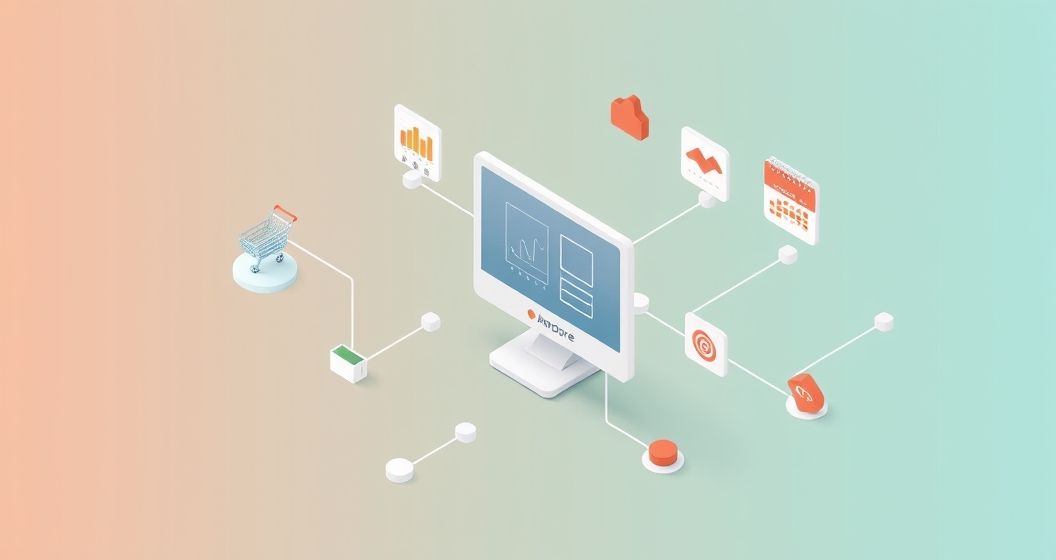For many creative entrepreneurs, Etsy serves as a vital platform to showcase unique products and connect with a global customer base. However, managing a growing Etsy shop involves numerous tasks, from order fulfillment to inventory tracking and marketing. Navigating these operational complexities can often feel overwhelming, diverting valuable time and energy from the core creative process. This is where strategic Etsy integrations become indispensable, offering powerful solutions to automate, streamline, and optimize various aspects of business management, ultimately fostering sustainable growth and efficiency for sellers.
The Core Concept of Etsy Integrations
Etsy integrations refer to the process of connecting your Etsy shop with external software, applications, or platforms. These connections enable data exchange and automated workflows between your shop and other tools, designed to simplify routine tasks. The primary purpose is to enhance operational efficiency, reduce manual effort, and provide sellers with a more comprehensive overview of their business. By synchronizing information, integrations eliminate redundant data entry and ensure consistency across all your sales channels and management systems, empowering a more organized approach to selling.
Types of Essential Etsy Integrations for Sellers
Streamlining Shipping and Fulfillment
Efficient shipping is a cornerstone of customer satisfaction for any Etsy seller. Integrating your shop with dedicated shipping and fulfillment platforms can dramatically simplify the entire process. These tools automatically import order details, allow for bulk label creation, and often provide discounted shipping rates. They also enable real-time tracking updates, which can be automatically shared with customers, reducing inquiries and enhancing transparency. This automation saves considerable time, minimizes human error, and ensures a smoother post-purchase experience for buyers, contributing to positive shop reviews.
Mastering Inventory and Order Management
Keeping track of inventory across multiple sales channels, or even just a busy Etsy shop, is critical to prevent overselling or stockouts. Inventory management integrations provide a centralized hub to monitor product levels, track raw materials, and manage variations. They automatically update stock counts as sales occur, ensuring accurate listings. Furthermore, these platforms consolidate order information from Etsy and other potential marketplaces, providing a unified view of all incoming sales, processing statuses, and customer details, which simplifies the entire order fulfillment workflow.
Simplifying Accounting and Bookkeeping
Financial management can be one of the most daunting tasks for small business owners. Integrating Etsy with accounting software streamlines bookkeeping by automatically importing sales data, transaction fees, and shipping costs. This automation ensures that all financial records are up-to-date and accurate, facilitating easier expense tracking, revenue reporting, and profit analysis. Such integrations are invaluable for tax preparation, providing a clear financial picture without the need for manual data entry, thereby saving time and reducing the potential for errors.
Expanding Reach with Marketing and SEO Tools
Effective marketing is essential for visibility and sales growth on Etsy. Integrating your shop with marketing and SEO tools can amplify your promotional efforts. These integrations allow for automated social media scheduling, email marketing campaigns, and in-depth keyword research specific to Etsy. They help identify trending tags, optimize product listings for search engines, and analyze customer behavior. By leveraging these tools, sellers can strategically promote their products, attract new buyers, and convert interest into sales more effectively, expanding their shop’s digital footprint.
Integrating with E-commerce Platforms for Growth
Many Etsy sellers eventually consider expanding to their own dedicated e-commerce website. Integrations with platforms like Shopify or WooCommerce allow sellers to synchronize their product listings, inventory, and order data between Etsy and their standalone store. This multi-channel integration prevents inventory discrepancies and ensures a consistent customer experience across all sales points. It provides sellers with greater control over branding, customer data, and marketing strategies, while still benefiting from Etsy’s established marketplace audience, fostering broader business growth.
Leveraging Print-on-Demand Services
Print-on-demand (POD) integrations are revolutionary for sellers offering custom designs on various products without holding physical inventory. Platforms like Printful or Printify connect directly with your Etsy shop, allowing you to create and list products with your designs. When a customer places an order, the POD service automatically handles printing, packaging, and shipping directly to the buyer. This integration eliminates the need for upfront investment in stock, reduces production time, and expands your product catalog with minimal risk, offering flexibility and scalability.
Choosing the Right Integration for Your Etsy Business
Selecting the most suitable integrations requires careful consideration of your specific business needs and long-term goals. Begin by identifying the key pain points in your current operations—is it shipping, inventory, or perhaps financial tracking? Evaluate potential integrations based on their core features, ensuring they directly address these challenges and offer a measurable return on investment. Some integrations might offer free tiers, while others come with monthly subscription fees that need to be factored into your budget and profitability calculations.
Consider the ease of use and the learning curve associated with each platform. A complex system, no matter how powerful, can negate efficiency gains if it requires significant time to master. Scalability is another critical factor; choose tools that can grow with your business and accommodate increasing order volumes or expanding product lines. Finally, assess the quality of customer support and the availability of resources like tutorials or community forums. Reliable support ensures you can quickly resolve any issues and maximize the benefits of the integration, maintaining smooth operations.
Optimizing Your Etsy Operations with Strategic Integrations
Embracing Etsy integrations is a strategic move that can fundamentally transform how you manage your online shop. By automating repetitive tasks and centralizing crucial data, sellers can reclaim valuable time, reduce operational stress, and minimize errors that often accompany manual processes. These tools empower you to focus more on product creation, customer engagement, and strategic business development, rather than getting bogged down in day-to-day administrative burdens. The journey towards a more efficient and profitable Etsy business is significantly enhanced through thoughtfully chosen and implemented integrations, setting a strong foundation for future success and sustained growth.






